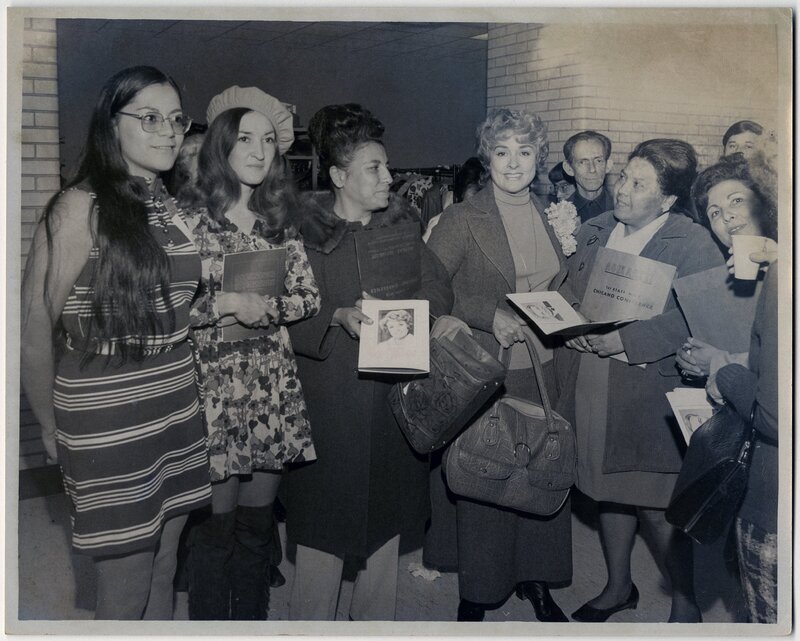SOCIO: Advocating for Hispanics in Utah

As the Hispanic population in Utah continued to develop during the course of the 20th century, so did the growing community’s efforts to secure equal opportunities for education, representation, and economic welfare. The Spanish-speaking Organization for Community, Integrity, and Opportunity (SOCIO) was a grassroots organization which for over 20 years helped develop reforms aimed at improving educational, economic, social, and political circumstances for the Hispanic population of Utah.
At a December 1967 meeting held in the Guadalupe Center, over 150 people—including Father Jerald H. Merrill from the “Our Lady of Guadalupe” Mission and Bishop Orlando Rivera from the Lucero Spanish Ward of the Church of Jesus Christ of Latter-day Saints (LDS, or Mormon)—came together to discuss the possibility of forming a grassroots organization aimed at advocating for the welfare of Hispanics in Utah. The name of this operation would be the Spanish-speaking Organization for Community, Integrity, and Opportunity (SOCIO). On March 21, 1968 SOCIO formally began operations on behalf of the over 50,000 Hispanics residing in Utah.
SOCIO started as a grassroots organization seeking to ensure the civil rights of Hispanics in Utah. For decades, Hispanics had faced varying levels of racism and discrimination. In the mid-1960s, many struggled to thrive in Utah’s growing economy. Discrimination was persistent in new private-sector job markets, and many lacked the skills and training for the new jobs and industries. These issues were at the forefront of SOCIO concerns.
Several other organizations shared SOCIO’s goals and concerns and focused on helping Hispanics, mainly Mexicans, navigate financial and social problems in Utah. However, SOCIO differed from other Chicano Civil Rights efforts in the Southwest in its approach to protecting and edifying the Spanish-speaking population. They made it a point to avoid confrontational methods of protest and activism and instead worked with the systems already in place in order to include Hispanics in leadership and fix the rules and regulations that were negatively affecting them. In this sense, they focused on rectifying the causes of challenges rather than alleviating negative outcomes as previous Hispanic rights organizations in Utah had.
SOCIO focused its attention on creating representation in both governmental and professional markets. They created several skill training programs aimed at increasing Hispanic self-sufficiency and included clerical skills, math and grammar skills, construction training, and even the Minority Women Employment Program which worked to train Hispanic women for occupations such as plumbing. Furthermore, SOCIO helped implement permanent offices in the Utah government such as the Governor's Advisory Council on Hispanic Affairs whose specific aim was to serve as the voice of Utah’s Spanish-speaking population at a bureaucratic level. They also proposed the formation of a Utah Migrant Council, whose task would be to care for migrants who came each year for agricultural labor. Efforts such as these helped to create an expectation within the Hispanic community of representation on the bureaucratic level.
However, by 1981, funding became a growing problem for SOCIO with no plausible solution. Previous efforts to rally funding from church organizations, businesses, and the government—along with a membership fee—proved insufficient. By 1990, SOCIO stopped operating, but not without making a lasting impact on both the educational, social, and economic systems in Utah as seen through the continuation of changes such as the Office of Hispanic Affairs.
Images


